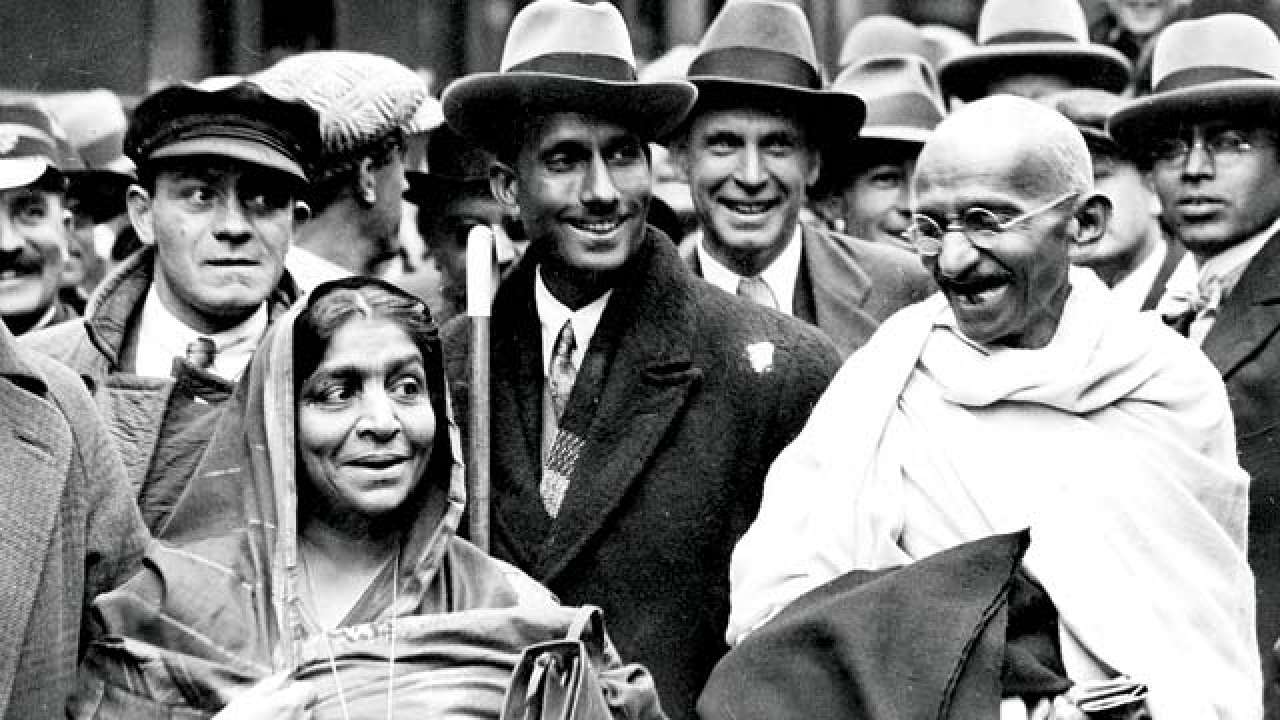
On Mahatma Gandhi’s seventieth birthday on October 2, 1939, Albert Einstein said, “Generations to come, it may well be, will scarce believe that such a man as this one ever in flesh and blood walked upon this Earth.”
That Gandhiji was a great man has never been doubted. The teasing question is, was he a saint among politicians or a politician among saints? For me, he was both.
The criteria for calling someone great is, in the words of the late Isaiah Berlin (1909-1997), “… In the realm of action, the great man seems able, almost alone and single-handed to transform one form of life into another or permanently and radically alters the outlook and values of a significant body of human beings”. Gandhi, thus, is the recognisable great man.
Earlier in the month, we observed his 148th birthday. In October 2019, the 150th year of his birth will be celebrated as a momentous occasion. Will it only be a ‘show’, or a time to reflect on his life, teachings, sacrifices, his compassion, magnanimity, his unshakeable commitment to truth, ethical and moral conduct. One hopes it will be so.
Mahatma Gandhi’s witty side is seldom recalled. He himself said, “I would commit suicide if I did not have sense of humour.” I shall mention two witticisms. In 1931 Gandhiji had gone to London to participate in the second Round Table conference, which to deliberate on Britain’s future India policy. The conference failed. King George V held a reception for the delegates at the Buckingham Palace. The king was not in favour of inviting Gandhi. The India office told the king that Gandhi could not be excluded. He accepted the invitation and went to the Palace in his usual dress. The Secretary of State for India requested His Majesty to avoiding mentioning India’s politics when he met Gandhi. Sure enough the King said, “Mr Gandhi I will not have you disturb my empire.” Gandhi said, “Your majesty I am a guest of yours and it would be improper for me to get into any argument.”
When he came out of the palace, correspondents asked him, “Mr Gandhi, what did the king say about your dress. Gandhi replied, “What could he say. He was wearing enough for the two of us.”
Another presswallah asked, “Mr Gandhi, what do you think of Western civilisation?” He responded: “It is a good idea.”
In 1934 Gandhiji resigned from the Congress. In practical terms his control over the Congress was not diminished. No important decision could be taken without his approval. About the same time, he abandoned Sabarmati ashram and put up a new ashram at Wardha, in almost the centre of India. It was among the hottest places in the country. Everyone in the Ashram lived in thatched mud-walled cottages. No electricity. No dhobi. Only one telephone for Gandhi to remain in touch with the Viceroy. The Congress Working Committee met in Wardha. During summer, the temperature was 115 degree Fahrenheit in the shade. He was up at 3 am. Prayers were held. Then he slept till 5:30 am. The day’s work began. The well-known American author and journalist Louis Fischer in his book A Week with Gandhi has given a serious-cum-comical account of life at the Wardha-Sevagram ashram. This was in June. The only transport was a tonga. Later, a car was arranged by Jamnalal Bajaj for the Mahatma, which he seldom used. He told Fischer, “Now put on your shoes and hat. Those two are indispensable here. Don’t get a sunstroke.”
In one of their talks, Gandhi said, “I think you are sahib loke”. Fisher asked, “Did you say Sahib bloke?” Gandhi roared with laughter; of course, they talked about serious subjects, including the future action by the Congress.
The most dramatic event of the late 1930s was Gandhi’s differences with Subhash Chandra Bose, who was elected President of Congress without the consent of the Mahatma for a second term. Bose won. It was unwise to cross the Mahatma’s path. Bose paid the price. He made one error after another and finally left India for Germany. The rest is history.
The US has never had a President like Donald Trump. Before 2016 he was not involved in the slippery political game. He was a successful business tycoon. When a President invites derision and disrespect, as President Trump does, he is damaging the President’s office. Restraint is alien to him. Heads of State and government must learn the virtues of silence and become acquainted with the political pressure cooker. Because he talks too much, his cerebral inadequacies become all too evident. So does his fluid character.
Political leaders cannot, must not, practice the hiring and firing concept. President Trump is doing so with alarming frequency. The other day his Secretary of State, did something unprecedented. On live TV he declared that he had not been asked to leave his job. That he had the full confidence of the President. Then why this squeal! The other day Trump said that his IQ was higher than that of his Secretary of State!
This kind of conduct is not only unbecoming, it is dangerous. Each day US TV channels are making fun of their President. It is now being publicly said that President is frustrated because he does not always have his way.
What is really most worrying is that President Trump lacks vision.
The writer is a former Union Minister. Views expressed are personal.